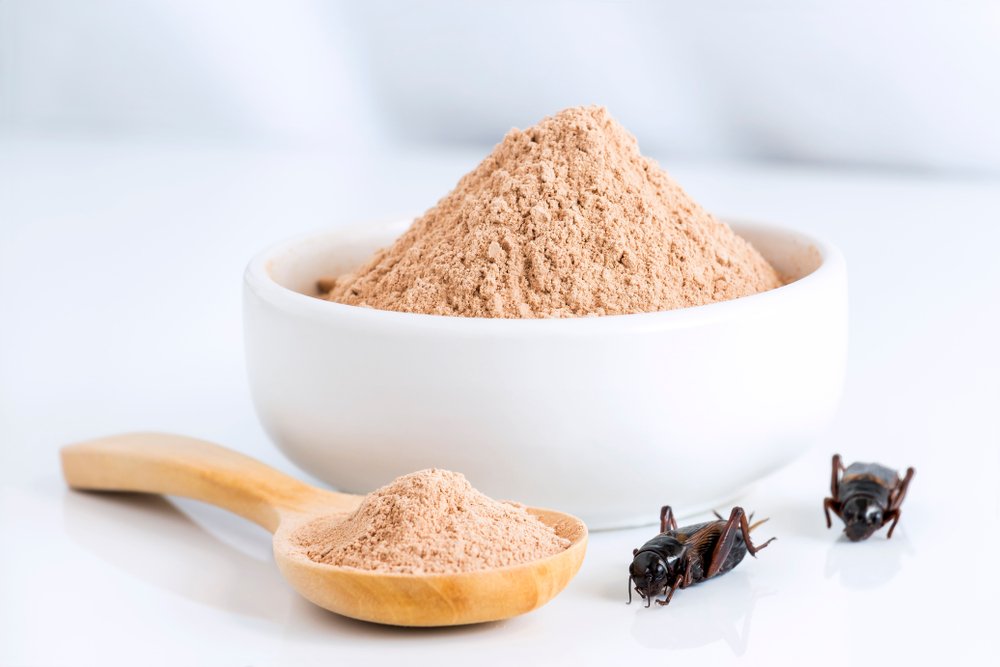Insect protein unpopular among Hungarians

Image by Shutterstock.com
Nearly two-thirds of people in Hungary would never consume food containing insect protein and only 8% think that there is a definite need for such food to be sold in stores in the future, according to a recent survey by Agroinform.hu.
At the beginning of May, the European Commission authorized the marketing of mealybug larvae as food. A successful insect meal production company is already operating in Hungary, although the insects are still used as animal feed.
The more than 300 responses to a questionnaire on the Agroinform.hu professional portal show that only 22% of respondents are open to eating a food that contains an ingredient derived from an insect. A further 14% make this conditional on the ingredient being present in a recognizable form (processed insect protein is usually found in food in the form of meal or oil). Some 64%, however, are unconditionally averse to eating such food.
Disgust is the most common reason for refusal (54%), but many, 28% of respondents, see the rejection of insect consumption as an element of cultural identity. In contrast to sustainability arguments, 13% cite the increase in plant-based protein production as an alternative, and a further 5% do not consider insect consumption compatible with their vegetarian or vegan lifestyle.
Some 51% of respondents believe that a generational change is needed for insect protein to become part of the human diet in the developed world. Approximately 28% believe that a change in this area can be achieved in a shorter time with considerable marketing efforts, while 21% believe that the main reason for the change will be the increase in the price of conventional foods.
Under the European Commission's decision, foods containing ingredients from insects could also appear on the shelves of domestic shops. Currently, 52% of respondents do not support this, and a further 40% make it a condition that such foods are clearly labeled.
The EU relies heavily on imports of protein-based feed, with Hungary alone receiving more than 500,000 tonnes of GMO soy from America every year. In addition, a considerable amount of fish meal is used in animal feed. Insect protein could be a promising alternative to partially replace these, Agroinform argues.
Only 40% of respondents reject the use of insect protein in animal feed. Circa 60% of those who reject it do so for familiar emotional reasons, 30% because of a lack of experience in making the switch, and 10% because they assume that the meat will be of a different quality from the usual one.
A separate question asked livestock farmers whether they would be willing to produce insects for their own feed supply if appropriate technological support and subsidies were available. If these conditions were met, 46% said they would be willing to do so.
"The survey clearly shows that although the EU would try to encourage the consumption of insect protein, there will not be a significant demand for it in the near future, mainly for cultural reasons," points out Bence Bolyki, CEO of Agroinform.hu. "In this situation, the improvement of sustainability in food production can be ensured primarily by increasing the proportion of plant protein use and supporting precision farming, which fundamentally improves the efficiency of protein production."
SUPPORT THE BUDAPEST BUSINESS JOURNAL
Producing journalism that is worthy of the name is a costly business. For 27 years, the publishers, editors and reporters of the Budapest Business Journal have striven to bring you business news that works, information that you can trust, that is factual, accurate and presented without fear or favor.
Newspaper organizations across the globe have struggled to find a business model that allows them to continue to excel, without compromising their ability to perform. Most recently, some have experimented with the idea of involving their most important stakeholders, their readers.
We would like to offer that same opportunity to our readers. We would like to invite you to help us deliver the quality business journalism you require. Hit our Support the BBJ button and you can choose the how much and how often you send us your contributions.








